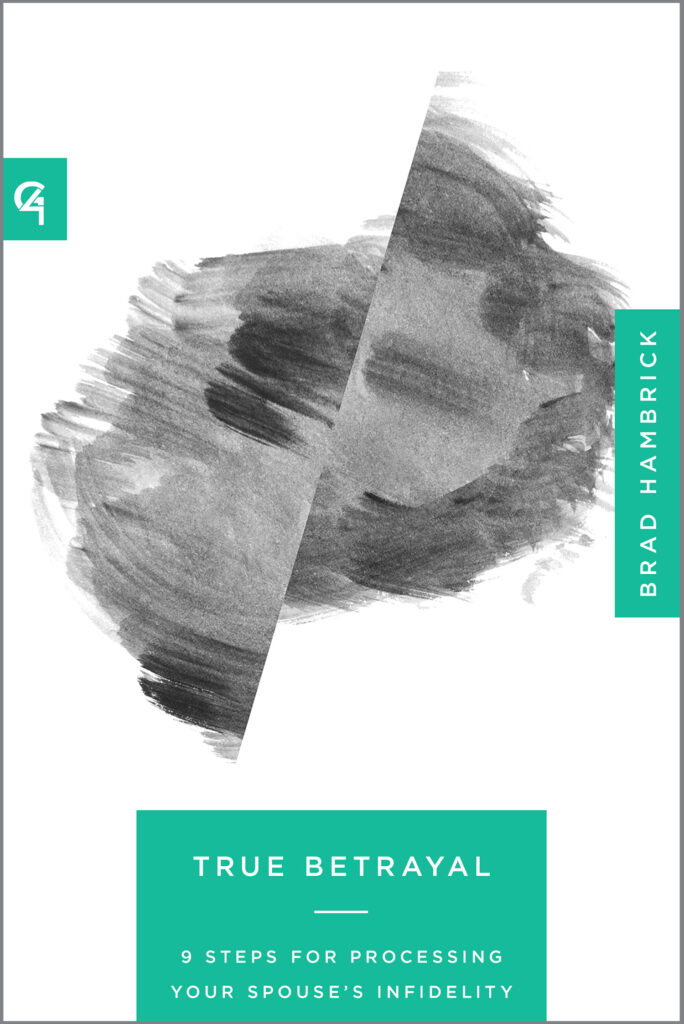Maybe you’ve had a water leak in your home. I pray not, but many of us have. Here is the simple principle behind this article: stopping the leak doesn’t end the damage. Stopping the leak only prevents more water from entering your home that would do more damage. Stopping the leak doesn’t prevent the existing water that has already escaped from doing the damage that water does. Warped flooring needs to be replaced. Industrial strength dehumidifiers might need to be brought in. Mold testing would be appropriate (IYKYK).
The Real Impact of Sin
I’m not a home repair guy, so why am I using this illustration? I believe this illustration parallels a common misconception ministry leaders have about how sin impacts relationships. We are prone to think (or, at least, care for situations as if): stopping sin ends suffering. That’s not true.
Think about these examples:
- In a marriage, one spouse hides an affair for eighteen months. The affair comes to light and the church rallies to the marriage. Who does the church address? Too often, exclusively the unfaithful spouse. For good reason, they want the unfaithful spouse to end the affair. But what then? Does everything just go back to normal after the infidelity stops?
- In a domestic violence situation,one spouse or parent is willing to use force to coerce others to comply with their wishes. The abuse comes to light and the church rallies to the family. Who does the church address? Too often, exclusively the violent spouse or parent. The unspoken assumption is that an unviolent house (one where the abused has stopped) should necessarily feel like a safe home again (a place of refuge and security).
- In a family marked by addiction, one family member is frequently impaired, irresponsible, manipulative, and makes decisions that endanger or disregard the others. The addiction comes to light. Who does the church address? Too often, exclusively the addict. Indirectly, it is assumed that if sobriety is achieved all other damage done to the family will naturally heal itself in time.
The list could go on. How many situations can you add to the list? How many situations can you think of where the sin of one person has a profound impact on others and the church’s near exclusive response is to address the sinner, inadvertently neglecting the damage done to the rest of the family who suffered?
Why Does this Problem Exist?
Do all churches or church leaders respond in this truncated fashion? No. But enough churches do that the problem needs to be named, examined, and understood so that a more holistic care response can be provided.
It might be easy to assume that when this problem exists, it indicates callous disregard for suffering by those church leaders. More often, it exists because we deal with “first things first” and never get to second things. Addressing the sin causing harm is the first step, in the same way that stopping the water leak is the first step. But it’s not the only step.
That raises a question for you and me: As we look at the suffering side of each situation above, do we know how to care for those affected?
- What are the ways that adultery harms the betrayed spouse? What are the ways that infidelity harms a marriage? What does good counsel look like for those forms of harm?
- Beyond physical harm, what type of damage does domestic violence do to the battered spouse? What are the lingering effects that persist even in nonviolent moments? How does living in fear for years impact someone? What does good counsel look like for those forms of harm?
- What types of long-term impact does addiction have on the non-addict family members? How does it impact a loved one when they try so hard to harmonize an addict whose melody of expectations is so erratic? What does good counsel look like for those forms of harm?
If I may make a bold statement: As church leaders, we must become equally competent at addressing the suffering side of damaged relationships as we are the sinner. Otherwise, our care for the both the sinner and sufferer in these relationships is incomplete. If we are not intentional in our care for the sufferer, we inadvertently reinforce the self-centeredness of the sinner. Not only do we neglect the sufferer; we fail to help the sinner see the consequences of their sin—a vital part of holistic repentance.
There is no shame in admitting we are better at identifying the pertinent questions and providing corrective care for the sin side of the relationship. We are finite people. We are naturally going to be more skilled and focus on some things more than others. However, the suffering books in the G4 curricula of the Church-Based Counseling series provide a tool to prevent this weakness from allowing our care to remain incomplete.
If we allow that imbalance to remain, that is a form of ministerial negligence. If we as churches and church leaders are going to be an ambassador of God as Refuge amid suffering as much as we are for God as Forgiver of sin, we cannot allow that imbalance to remain.
What Is Your Next Step?
Education. You need to study about how to be God’s ambassador toward the suffering side of major relational discord as much you do the sin side. But it is not enough to just be personally educated, although that is where we must start. What you learn needs to begin to impact your preaching, teaching, and counseling. The people God cares for through you need to glean from what you learn, not just in your private ministry of the Word (i.e., counseling) but also in through the public ministry of the Word.
Litmus Test: How do you know if you need to receive the admonishment of this article?
- Review Your Intake: Look at your bookshelf, particularly the books you have on counseling and Christian living. What percentage of the books take approach problems in living primarily through a sin perspective?
- Review Your Output: Now, consider the books on counseling and Christian living you recommend in preaching, teaching, and counseling. What percentage of your recommendation approach problems in living primarily through a sin perspective?
If more than 60 percent of your reading and recommendations are sin-focused, realize you may be the plumber who comes into a home and “stops the leak” (i.e., addresses sin), but does very little to “address the water” (i.e., cares for suffering) that is continuing to do damage. When we approach the shepherding care provided in our churches this way, we are less than a full-orbed ambassador of God’s concern for those situations. Realize where you are and study toward balance.
True Betrayal
Finding out about your spouse’s sexual sin feels like a gut punch. In your overwhelming flood of emotions, you may feel like pretending like it never happened or you might think you need to take intense, immediate action. In the middle of your questions and pain, you need a safe, stable place to process what has happened and to take wise steps forward. True Betrayal by counselor and pastor Brad Hambrick outlines a clear, compassionate, and biblical 9-step framework for processing and healing from your spouse’s sexual infidelity.







